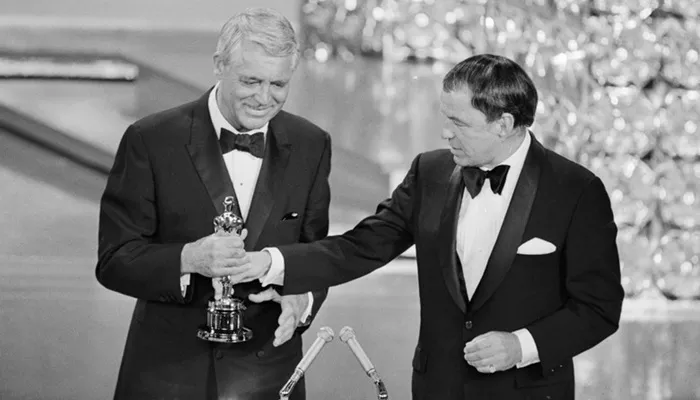Cary Grant, long celebrated as Hollywood’s epitome of charm and elegance, bore the burden of being one of the world’s most handsome and desirable leading men for decades. While many admired him and countless fans dreamed of marrying him rather than his on-screen partners, this iconic status was often a source of personal struggle for Grant himself. As he famously confessed, “Everyone in the world wants to be Cary Grant, including me.”
Yet even an actor of his caliber found it difficult to break away from typecasting. Many stars have risked their reputations by taking on roles far removed from their usual personas. Julie Andrews, for example, shocked audiences by stripping down in S.O.B. to shed her wholesome image from The Sound of Music. Gregory Peck, synonymous with moral integrity after To Kill a Mockingbird, deliberately played a Nazi officer in The Boys from Brazil to challenge expectations. Often, these bold moves are met with either audience indifference or harsh criticism — as with Meg Ryan’s darker role in In the Cut, which led to a significant career slump.
In the 1960s, Cary Grant attempted to redefine his career but faced considerable challenges. Having semi-retired multiple times, he was mostly remembered for his polished roles in classics like To Catch a Thief and Charade. Early in the decade, he was offered a rare chance to play what the screenwriter described as “a drunken, repulsive, irritable, and misanthropic character,” a role that seemed tailor-made to break his typecast image. Yet, Grant was far from enthusiastic about the project.
The film, titled The Bachelor Father, tells the story of a heavy-drinking beachcomber in the South Pacific during World War II (played by Grant), who is reluctantly forced to rescue a French teacher (Leslie Caron) and seven trapped schoolgirls. Although his character is gruff and indifferent to their plight, his mannerisms and appearance bore an undeniable resemblance to Cary Grant himself, making a romantic subplot almost inevitable.
Grant disliked the story and was unimpressed by the script. However, after searching for more appealing projects in vain, Universal Studios convinced him to take the part. “I was exhausted, wearing jeans and sporting a beard,” Grant recalled. “That was me. After all those years of carefully dressing up for movies, I wanted to try something different.”
Despite his willingness, co-stars remembered working with Grant as challenging. He reportedly exclaimed multiple times, “This movie destroyed me!” and expressed frustration over the film’s escalating budget. Leslie Caron remarked, “He kept us on our toes.” Ultimately, the film was a gamble for everyone involved. While Grant struggled to convincingly portray a homeless man battling addiction, the film received positive reviews and went on to win the Oscar for Best Screenplay — an award given to a script Grant once disliked.
Related Topics
- Annecy Troupe’s The Mourning Children Brings History to Life
- Mason Gooding to Star in Kevin Hart’s Bachelor Party Comedy ‘72 Hours’
- Audible Releases New Pride and Prejudice Audio Drama

